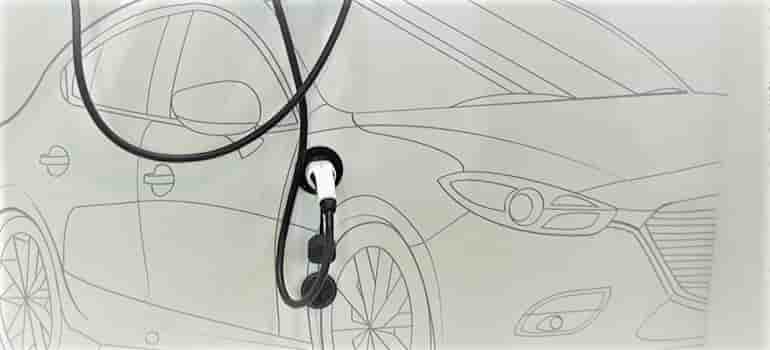
The Centre has upgraded the fuel standards to BS-VI in a bid to fight pollution, Union Environment Minister Prakash Javadekar on Monday and urged people to shift to electric vehicles (EVs).
Speaking at a webinar on the first ever ‘International Day of Clean Air For Blue Skies’, Javadekar also urged the states to come up with specific plans of how to reduce pollution in their respective cities.
“We did not have to celebrate blue skies day earlier but with industrialisation and huge increase in population, number of vehicles, waste and dust, pollution has also gone up,” he said, adding that more public transport could lessen pollution.
“I believe that more the public transport, lesser the pollution. I use an electric two-wheeler and we bring our household goods using that vehicle. I urge people to use more electric vehicles (EVs).
“In Delhi, we also have electric three-wheelers which are of great significance. States must decide on these three things – using cleaner fuels, building good roads to ease traffic and ensuring that brick kilns use zigzag technology. It is also the states’ responsibility,” Javadekar said.
The minister said as the country has now migrated to BS-VI standards, quality petrol and diesel is being provided, which is an important initiative to fight pollution.
He said in the last few years, roads and highways are being constructed by the government at a record pace and due to this less pollution is taking place in comparison to previous times.
Principal secretaries of the Urban Development department and Environment department of 28 states and eight Union Territories, commissioners of 122 cities as identified in National Clean Air Programme (NCAP) launched in 2019, also participated in the webinar.
The environment minister also launched a brochure on ‘Integrated Measures to Combat Air Pollution’ under the (NCAP) which emphasises on city specific plans in the identified 122 cities.
During the webinar, Babul Supriyo, minister of state for environment, emphasised on the need to create awareness among people about air quality instead of imposing fines.
“Air is what we all breathe. Everyone must ensure it is clean. We need to raise public awareness and not impose fines to improve air quality,” Supriyo said.
Sharing a roadmap to tackle air pollution, Central Pollution Control Board (CPCB) Member Secretary Prashant Gargava said out of 122 non-attainment cities identified under NCAP, city plans of 110 cities in 23 states are under implementation while plans of 12 cities in five states are under review.
States in which no city has been identified as non-attainment cities under NCAP include Haryana, Goa, Kerala, Sikkim, Arunachal Pradesh, Tripura, Mizoram and Manipur.
“Several mitigation measures are being taken by the authorities. We launched the ‘Sameer’ mobile application in 2016 to monitor AQI and now we have our attention focused on monitoring and reducing pollution in 122 NACs,”Gargava said.
Gargava also said shifting two-wheelers to electric mode of energy could greatly help in curbing pollution.
“If two wheelers could be shifted to electric mode of energy, that would make a substantial difference. We need to identify pollution hotspots and accordingly take action,” the CPCB official said, while also proposing creation of a dashboard for sharing success stories and tracking implementation of NCAP.
Addressing the webinar, the environment minister also said he aimed to achieve the goal set by Prime Minister Narendra Modi for holistic improvement in air quality in 100 cities.
“Acceptance of a problem is beginning of the solution. In 2014, we launched air quality index (AQI) monitoring. Now with pan India Clean Air programme, I am sure we will be able to achieve the goal set by Prime Minister Narendra Modi of holistic improvement in air quality in 100 cities,” he said.
He also said the challenge is to reduce pollution for which “we initiated the NCAP in 2019 under which crores of rupees have been given to the 122 non-attainment cities to come up with a plan to reduce pollution.”
“Several roads have been built in the last six years in a speedy manner which has helped ease the traffic congestion and helped reduce pollution. We have also enhanced emission standards for industries and I am glad that emissions from 4,500 industries is being monitored.
“I want to say that the central government will help states in the cause of improving air quality but the states also have to take responsibility now. State should come up with specific plans of how to reduce pollution in their respective cities,” Javadekar said.
Environment Secretary R P Gupta said that the Centre will provide all the necessary support but cities must ensure the waste is taken care of properly.
Prime Minister Narendra Modi in his address from the Red Fort on this Independence Day, had highlighted the need of “Holistic Improvement in Air quality” in 100 cities.
The General Assembly of United Nations on December 19, 2019 adopted a resolution to observe the International Day of Clean Air for Blue Skies on September 7 every year starting from 2020.


